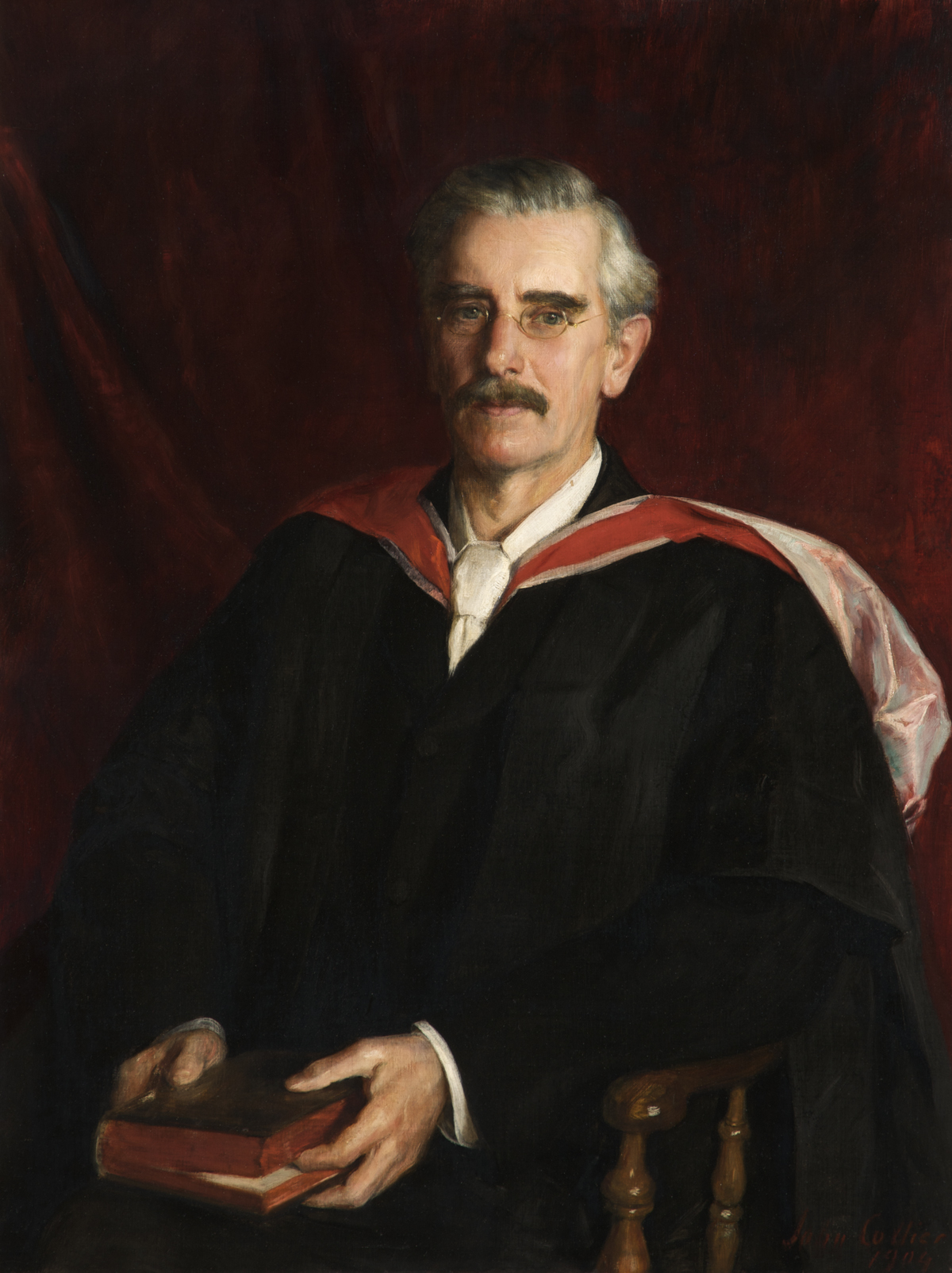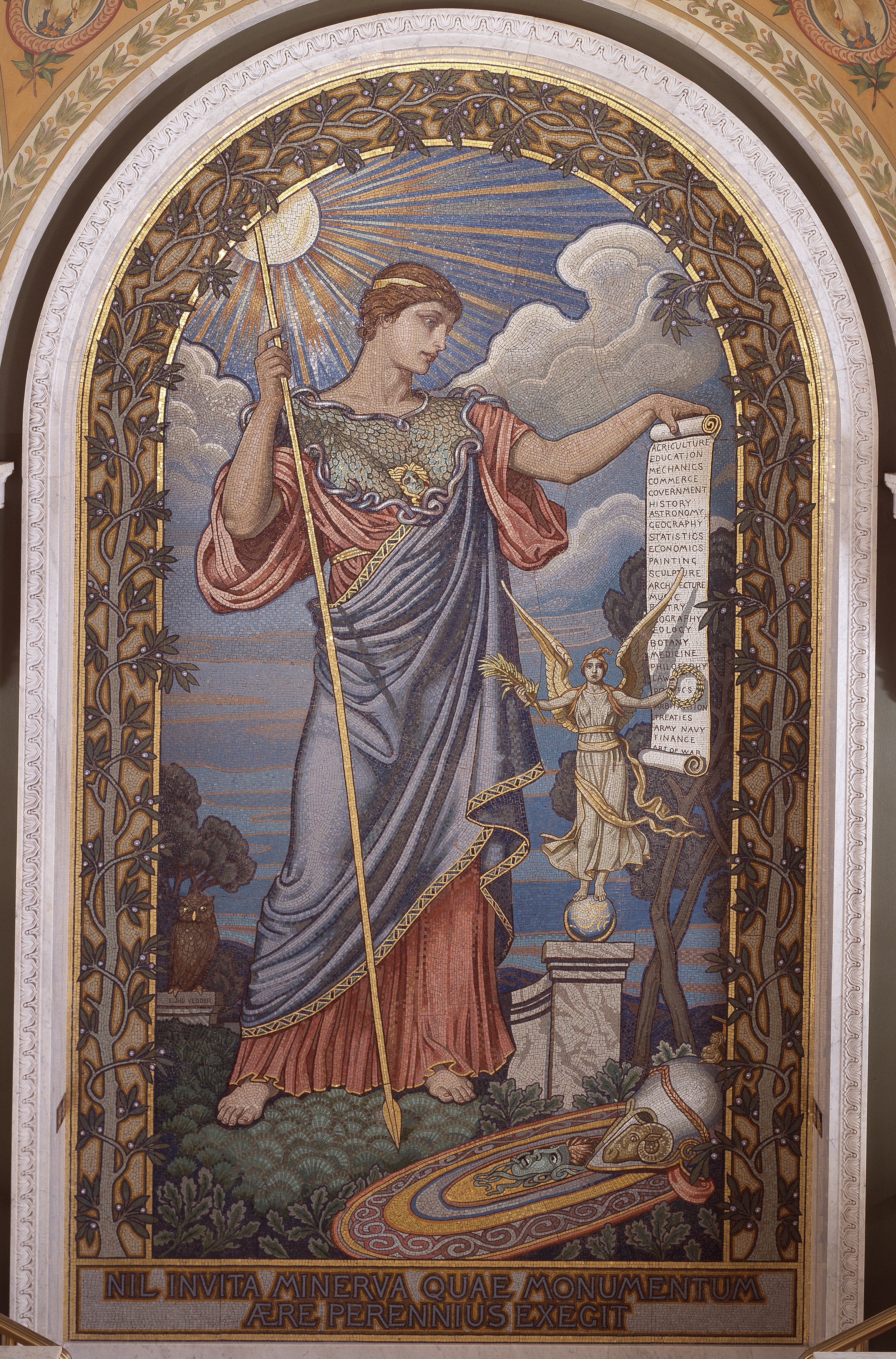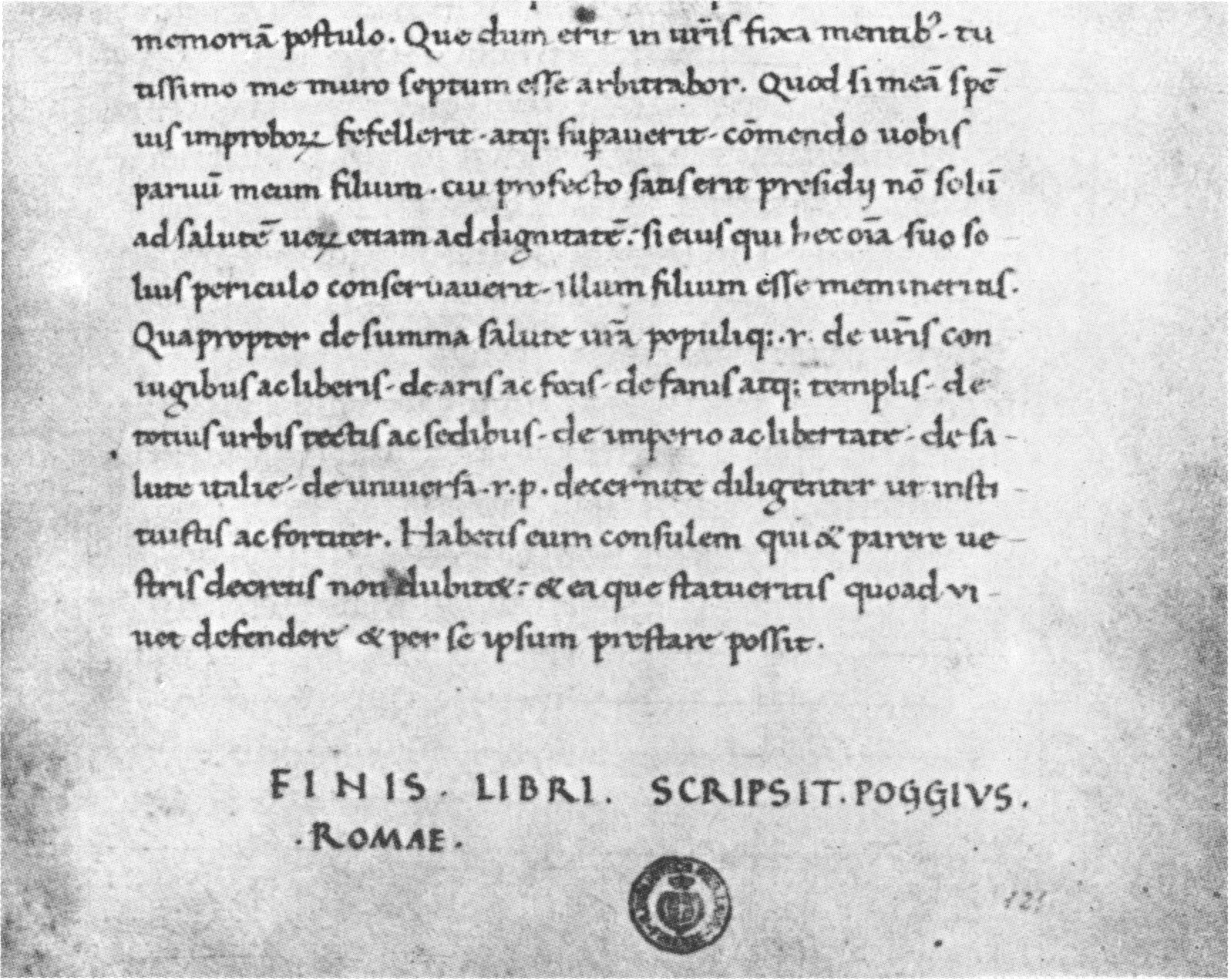|
Augustus Wilkins
Augustus Samuel Wilkins (1843–1905) was an English classical scholar. He held a professorship of Latin in Manchester for 34 years. Life He was born in Enfield Road, Kingsland, London, on 20 August 1843 into a Congregationalist family, the son of Samuel J. Wilkins, a schoolmaster in Brixton, and his wife, Mary Haslam, of Thaxted, Essex. Educated at Bishop Stortford collegiate school, he then attended the lectures of Henry Malden, professor of Greek and Francis William Newman, professor of Latin, at University College, London. Entering St John's College, Cambridge with an open exhibition in October 1864, he became a foundation scholar in 1866. He was President of the Cambridge Union for Lent term, 1868. In 1868 Wilkins graduated B.A. as fifth in the first class of the classical tripos. A nonconformist, Wilkins was at that point legally disqualified from a college fellowship; that changed after the Universities Tests Act 1871, but by then Wilkins was married, still an impediment ... [...More Info...] [...Related Items...] OR: [Wikipedia] [Google] [Baidu] |
Colwyn Bay
Colwyn Bay ( cy, Bae Colwyn) is a town, community and seaside resort in Conwy County Borough on the north coast of Wales overlooking the Irish Sea. It lies within the historic county of Denbighshire. Eight neighbouring communities are incorporated within its postal district. Established as its own separate parish in 1844 with just a small grouping of homes and farms where the community of Old Colwyn stands today, Colwyn Bay has expanded to become the second-largest community and business centre in the north of Wales as well as the 14th largest in the whole of Wales with the urban statistical area, including Old Colwyn, Rhos-on-Sea, and Mochdre and Penrhyn Bay, having a population of 34,284 at the 2011 census. History The western side of Colwyn Bay, Rhos-on-Sea, includes a number of historic sites associated with St Trillo and Ednyfed Fychan, the 13th century general and councillor to Llywelyn the Great. The name 'Colwyn' may be named after 'Collwyn ap Tangno' who was ... [...More Info...] [...Related Items...] OR: [Wikipedia] [Google] [Baidu] |
Statius
Publius Papinius Statius (Greek: Πόπλιος Παπίνιος Στάτιος; ; ) was a Greco-Roman poet of the 1st century CE. His surviving Latin poetry includes an epic in twelve books, the ''Thebaid''; a collection of occasional poetry, the ''Silvae''; and an unfinished epic, the ''Achilleid''. He is also known for his appearance as a guide in the ''Purgatory'' section of Dante's epic poem, the ''Divine Comedy''. Life Family background Information about Statius' life is almost entirely drawn from his ''Silvae'' and a mention by the satirist Juvenal. He was born to a family of Greek-Campanian origin; his Roman cognomen suggests that at some time an ancestor of his was freed and adopted the name of his former master, although neither Statius nor his father were slaves. The poet's father (whose name is unknown) was a native of Velia but later moved to Naples and spent time in Rome where he taught with marked success. From boyhood to adulthood, Statius' father proved himself ... [...More Info...] [...Related Items...] OR: [Wikipedia] [Google] [Baidu] |
John Percival Postgate
John Percival Postgate, FBA (24 October 1853 – 15 July 1926) was an English classicist and professor of Latin at the University of Liverpool from 1909 to 1920. He was a member of the Postgate family. Born in Birmingham, the son of John Postgate, he was educated at King Edward's School where he became head boy. He won a scholarship to Trinity College, Cambridge, where he read classics, being elected a Fellow in 1878. He was elected as a member to the American Philosophical Society in 1886. He established himself as a creative editor of Latin poetry with published editions of Propertius, Lucan, Tibullus and Phaedrus. His major work was the two-volume ''Corpus Poetarum Latinorum'', a triumph of editorial organisation. An influential work was his often reprinted "The New Latin Primer", 1888, much used in British schools over subsequent decades. While at Cambridge, he edited the '' Classical Review'' and the '' Classical Quarterly'' while holding the chair of comparative ... [...More Info...] [...Related Items...] OR: [Wikipedia] [Google] [Baidu] |
Epistles (Horace)
The ''Epistles'' (or ''Letters'') of Horace were published in two books, in 20 BC and 14 BC, respectively. *''Epistularum liber primus'' (''First Book of Letters'') is the seventh work by Horace, published in the year 20 BC. This book consists of 20 Epistles. The phrase ''sapere aude'' ("dare to be wise") comes from this collection of poems. *''Epistularum liber secundus'' (''Second Book of Letters'') was published in the year 14 BC. This book consists of 3 Epistles. However, the third epistle – the Ars Poetica – is usually treated as a separate composition. Background As one commentator has put it: "Horace's ''Epistles'' may be said to be a continuation of his Satires in the form of letters... But few of the epistles are ctuallyletters except in form..."The Works of Horace Rendered into English Prose by James Lonsdale M.A. and Samuel Lee M.A. London: MacMillan and Co., 1883. Edition is available on Google Books. They do indeed contain an excellent specimen of a letter of ... [...More Info...] [...Related Items...] OR: [Wikipedia] [Google] [Baidu] |
De Imperio Gnæi Pompeii
''De Imperio Cn. Pompei'' ("On the ''Imperium'' of Gnaeus Pompeius"), also known as ''Pro Lege Manilia'' ("In Favour of the Manilian Law"), was a speech delivered by Cicero in 66 BC before the Roman popular assembly. It was in support of the proposal made by Gaius Manilius, a tribune of the people, that Pompey the Great be given sole command against Mithridates in the Third Mithridatic War. Cicero advertised Pompey as the only man with the skills for the campaign but also attempted to avoid offending the senatorial aristocracy unnecessarily. However, by supporting Pompey, Cicero had publicly committed himself. References External links * Cicero Marcus Tullius Cicero ( ; ; 3 January 106 BC – 7 December 43 BC) was a Roman statesman, lawyer, scholar, philosopher, and academic skeptic, who tried to uphold optimate principles during the political crises that led to the estab ...''De Lege Manilia'', English Translationat ''attalus.org'' * Orations of Cicero ... [...More Info...] [...Related Items...] OR: [Wikipedia] [Google] [Baidu] |
Speeches Against Catiline
The Catilinarian Orations (; also simply the ''Catilinarians'') are a set of speeches to the Roman Senate given in 63 BC by Marcus Tullius Cicero, one of the year's consuls, accusing a senator, Lucius Sergius Catilina (Catiline), of leading a plot to overthrow the Roman Senate. Most accounts of the events come from Cicero himself. Some modern historians, and ancient sources such as Sallust, suggest that Catiline was a more complex character than Cicero's writings declare, and that Cicero was heavily influenced by a desire to establish a lasting reputation as a great Roman patriot and statesman. This is one of the best-documented events surviving from the ancient world, and has set the stage for classic political struggles pitting state security against civil liberties. Background Running for the consulship for a second time after having lost at the first attempt, Catiline was an advocate for the cancellation of debts and for land redistribution. There was apparently substantial e ... [...More Info...] [...Related Items...] OR: [Wikipedia] [Google] [Baidu] |
Georg Curtius
Georg Curtius (April 16, 1820August 12, 1885) was a German philologist and distinguished comparativist. Biography Curtius was born in Lübeck, and was the brother of the historian and archeologist Ernst Curtius. After an education at Bonn and Berlin, he was for three years a schoolmaster in Dresden, until (in 1845) he returned to Berlin University as ''privatdocent''. In 1849 he was placed in charge of the Philological Seminary at Prague, and two years later was appointed professor of classical philology in Prague University. In 1854, he moved from Prague to a similar appointment at Kiel, and again in 1862 from Kiel to Leipzig. He was teaching lndo-European and the historical grammar of the classical languages at Leipzig. His is contributions were focused "to bridge the gulf between classical philology and Aryan linguistics." As a professor he constantly attempted " to bring Classical Philology and the Science of Language into closer relation with each other." This clear ... [...More Info...] [...Related Items...] OR: [Wikipedia] [Google] [Baidu] |
Edwin Bourdieu England
The name Edwin means "rich friend". It comes from the Old English elements "ead" (rich, blessed) and "ƿine" (friend). The original Anglo-Saxon form is Eadƿine, which is also found for Anglo-Saxon figures. People * Edwin of Northumbria (died 632 or 633), King of Northumbria and Christian saint * Edwin (son of Edward the Elder) (died 933) * Eadwine of Sussex (died 982), King of Sussex * Eadwine of Abingdon (died 990), Abbot of Abingdon * Edwin, Earl of Mercia (died 1071), brother-in-law of Harold Godwinson (Harold II) *Edwin (director) (born 1978), Indonesian filmmaker * Edwin (musician) (born 1968), Canadian musician * Edwin Abeygunasekera, Sri Lankan Sinhala politician, member of the 1st and 2nd State Council of Ceylon * Edwin Ariyadasa (1922-2021), Sri Lankan Sinhala journalist * Edwin Austin Abbey (1852–1911) British artist * Edwin Eugene Aldrin (born 1930), although he changed it to Buzz Aldrin, American astronaut * Edwin Howard Armstrong (1890–1954), American inven ... [...More Info...] [...Related Items...] OR: [Wikipedia] [Google] [Baidu] |
Karl Wilhelm Piderit
Karl Wilhelm Piderit (20 March 1815, in Witzenhausen – 27 May 1875, in Hanau) was a German classical philologist and educator. From 1833 he studied at the University of Marburg, receiving his doctorate with a dissertation on the rhetorician Hermagoras of Temnos, titled ''Commentatio De Hermagora rhetora''. In 1837 he became an apprentice-teacher at the gymnasium in Hersfeld, and two years later began teaching classes at a grammar school in Marburg. In 1844 he returned to Hersfeld as a teacher, and from 1850 performed similar duties at the gymnasium in Kassel. In 1853 he was appointed director of the Hanau gymnasium, a position he maintained up until his death in 1875.ADB:Piderit, Karl Wilhelm at |
Cicero De Oratore
''De Oratore'' (''On the Orator''; not to be confused with ''Orator'') is a dialogue written by Cicero in 55 BC. It is set in 91 BC, when Lucius Licinius Crassus dies, just before the Social War and the civil war between Marius and Sulla, during which Marcus Antonius (orator), the other great orator of this dialogue, dies. During this year, the author faces a difficult political situation: after his return from exile in Dyrrachium (modern Albania), his house was destroyed by the gangs of Clodius in a time when violence was common. This was intertwined with the street politics of Rome. Amidst the moral and political decadence of the state, Cicero wrote ''De Oratore'' to describe the ideal orator and imagine him as a moral guide of the state. He did not intend ''De Oratore'' as merely a treatise on rhetoric, but went beyond mere technique to make several references to philosophical principles. Cicero believed that the power of persuasion—the ability to verbally manipulate opi ... [...More Info...] [...Related Items...] OR: [Wikipedia] [Google] [Baidu] |
Connop Thirlwall
Connop Thirlwall (11 January 1797 – 27 July 1875) was an English bishop (in Wales) and historian. Early life Thirlwall was born at Stepney, London, to Thomas and Susannah Thirlwall. His father was an Anglican priest who claimed descent from a Northumbrian family, served for some years as chaplain to Bishop Thomas Percy before becoming rector of Bowers Gifford in Essex in 1814. The young Connop was a prodigy, learning Latin at three, Greek at four, and writing sermons at seven. He went to Charterhouse School, where George Grote and Julius Hare were among his schoolfellows. He went up to Trinity College, Cambridge, in October 1814. gained the Craven university scholarship and the chancellor's classical medal and served as Secretary of the Cambridge Union Society in the Lent term, 1817. In October 1818 he was elected to a fellowship, and went for a year's travel on the Continent. In Rome he made friends with Christian Charles Josias Bunsen, which had a most important influenc ... [...More Info...] [...Related Items...] OR: [Wikipedia] [Google] [Baidu] |


.djvu/page1-1200px-The_New_Latin_Primer_(Postgate).djvu.jpg)



